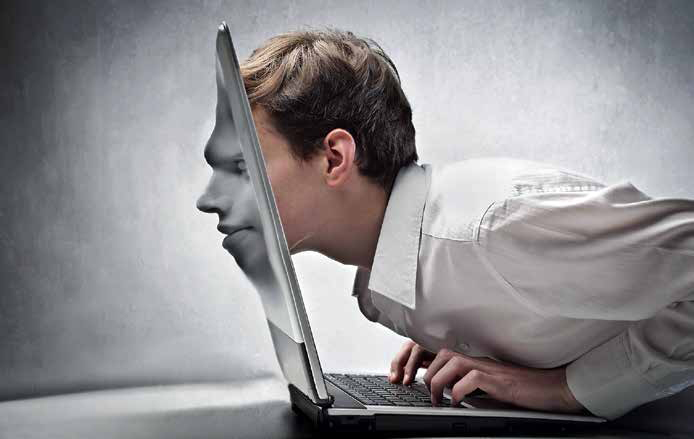Issue No.14 / September 16-30,2015

It all began when he was in the XI standard. His inquisitive mind led him towards the Internet, and he started spending more time in front of the computer. Long hours of sitting took a toll on his health and he developed back pain. Yet the 16-year-old boy in Pune could not stay away from the virtual world. By the end of that year, he had downloaded data worth Rs.12,000. One day, when his mother tried to unplug the Internet connection, he stabbed her. She was saved, but the boy’s obsessive behaviour kept worsening. His parents took him to Chaitanya Mental Health Care Centre (CMHCC) where he was diagnosed with ‘Internet Addiction’. He was cured after three months of behaviour modification therapy and counselling sessions along with his family.
Rony George, director of CMHCC, says those who use Internet for 14 to 15 hours daily, or to the extent that their everyday routine gets affected, can be categorised as Internet addicts.
With more than 243 million Internet users, India ranks third in terms of Internet usage, following the US and China, according to internetlivestats.com, which provides information on Internet users. Health experts say with explosive use of the Internet in the last decade and growing dependence on it, a good number of people with access to multimedia could suffer from the behavioural disorder.
In 2013, a study funded by the Indian Council of Medical Research (ICMR) surveyed 2,755 people in the age group of 18 to 65 in urban areas of Bengaluru. The researchers found that 1.3 per cent people were addicted to the Internet, 4.1 per cent to mobile phones, 3.5 per cent to social networking sites, 4 per cent to online shopping, 2 per cent to online pornography and 1.2 per cent to gambling.
That year, Deepak Goel, psychiatrist with Topiwala National Medical College and B Y L Nair Hospital in Mumbai, found that 0.7 percent of the 987 students from the city who participated in the study, were Internet addicts.
India is not the only country battling with the addiction. In Iran, 40.7 per cent of the students are addicted to the Internet, according to a study published in Bulletin of Environment, Pharmacology and Life Science (EP&LS) in February 2014. About 2.2 per cent of the students suffer from severe addiction.
India is not the only country battling with the addiction. In Iran, 40.7 per cent of the students are addicted to the Internet, according to a study published in bulletin of EP & LS
In the US, which has the highest Internet usage, the American Psychological Associa tion (APA) is trying to understand the disorder and its treatment. So far, APA has only defined Internet Addiction Disorder and says it is a pattern of using the Internet to the extent that it can cause dysfunction and unpleasant internal reactions just in two months. According to APA, spending considerable time on matters related to the Internet, reduction of social, occupational and recreational activities. An individual showing any three symptoms can be categorised as Internet addict, it says.
In its effort to contain the addiction, China set up an Internet Addiction Treatment Center in the General Hospital of the Beijing Military Region. As per a media report, the hospital, in its five years of existence till 2009, had used electric shock therapy. In 2010, the South Korean government announced a national programme to contain the addiction after it realised that more than 2 million children—two in every 10—suffering from Internet addiction.
The 2013 study by Deepak Goel has found a clear relation between psychological distress and addictive use of the Internet. Those excessively using the Internet were suffering from anxiety and depression, notes the study. The researchers recommend that Internet addiction can be prevented by building a healthy living environment around them, controlling the computer and Internet usage, promoting book reading and providing treatment to those with a psychological problem.
There is also a need for more research and awareness to understand the real picture of Internet addiction in India. While enjoying their Internet activities, children lose control over their routine activities and their performance goes down. They start withdrawing from real world.
By Rajesh Rao and Mahalakshmi Hariharan